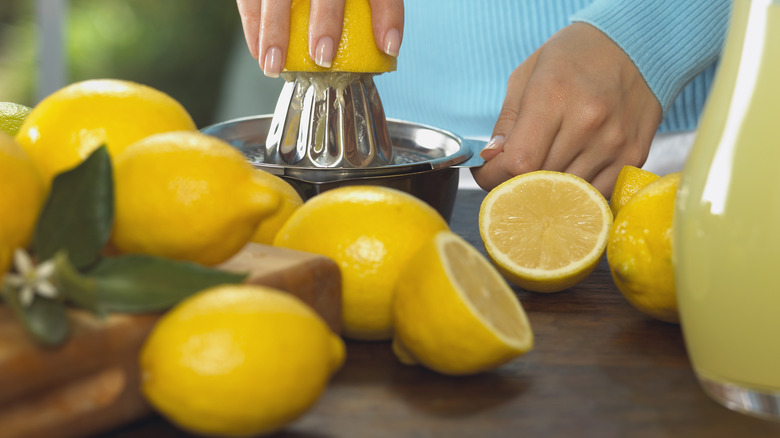Why You Should Always Deodorize Your Kitchen After Cooking
Smells are essential to our life experiences; they are so important that scents have been scientifically linked to both memory and emotion (via The Harvard Gazette). But just as some smells can trigger pleasant memories and bring us back to happier places and times, studies show unpleasant odors can affect our mood negatively, so that we are potentially left in a worse state and feeling more anxious when exposed to them, per ScienceDirect.
This brings us to our kitchens, a source of smells that can make us feel hungry when we catch a whiff of our favorite dishes cooking, or turn our stomachs when we smell something we find disagreeable. Of course, this is why it is vital to deal with smells after cooking – so that they only linger for as long as you want them around. And while you might consider deodorizing your kitchen a challenge, you can do a few things to make sure odors dissipate before they take up residency in your clothes or furniture.
What happens when we don't deal with smells as they develop
We might think of smells as being shapeless and invisible, but as Scientific American points out, smells – no matter what they are or where they come from – are made up of tiny chemical molecules light enough to be – quite literally – carried away by physical factors that surround them.
But even when we can't see what a smell looks like, its molecules can still sneak into things we own around the house – from our furnishings to our floor and window treatments. Once there, they can get trapped by the fibers, which is why it's essential to de-stink your kitchen as soon as you're done cooking up a storm. After all, the last thing you want is the smell of last week's dinner lingering in various parts of your home, even though, as the American Chemical Society points out, smell molecules are hardly germy and don't really cause any harm.
Common household items can help smells from lingering
Cleanipedia suggests one of the quickest ways to deal with cooking smells is to create an environment that doesn't encourage them to loiter around. This means opening a window before you start prepping dinner so that fresh air will be all that's left to linger in your kitchen after a delicious meal.
And remember that big box of baking soda you picked up at the grocery last week? That will come in handy when you need a DIY smell exorciser since just a few scoops in a container near your cooking area will be enough to eat up all the odors. If you don't have baking soda, unused coffee grounds will also do the trick, as will a bowl of vinegar, per Proline Range Hoods.
There is always a good reason to keep fresh lemons around, and they can be your best ally when you need to deodorize a space. Proline Range Hoods says you can cook up a scent storm by mixing lemon and cinnamon sticks in a stock pot, then simmering that to mask and eventually eliminate cooking odors that refuse to go away. Of course, for a more expensive solution to kitchen odors, homeowners with the funds and desire may consider choosing the perfect range hood to complement their kitchen renovation plans.


